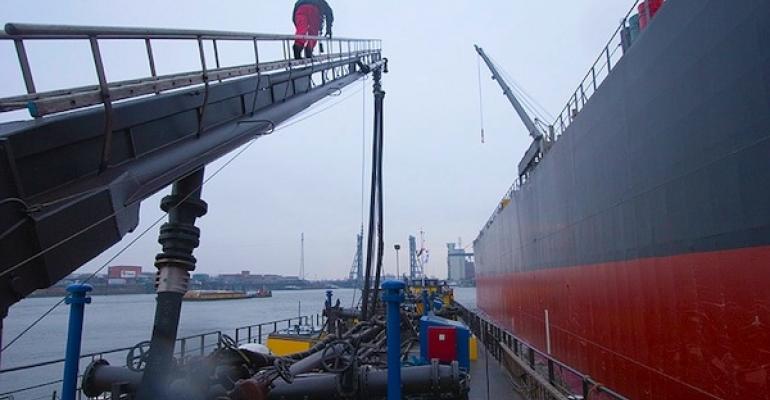VPS managing director for Asia, Middle East and Africa, Rahul Choudhuri, believes the compliant, hybrid fuels will be better and easier to use than similar 0.1% fuels being used in 0.1% sulphur emission control areas (ECAs).
“If we look at the last four years we do have a lot of experience with low sulphur fuel oils, 0.1% fuel oils, they have been primarily used in Europe ECA areas,” Choudhuri told a Wilhelmsen Ship Management breakfast seminar in Singapore on Friday.
“You are going to 0.5% low sulphur fuel oils coming up. The industry has experience in the last four to five years in using these (0.1% sulphur) fuels, the 0.5% fuels should be better and easier to use.”
While there has been a surge in owners ordering scrubbers to comply with the 0.5% sulphur cap this will only cover a small percentage of the fleet with the majority of owners opting either burn gas oil or compliant low sulphur fuels.
Read more: ExxonMobil seeks to reassure shipowners on 2020 compliant low sulphur fuels
As major bunker fuel suppliers announce their planned low sulphur fuel ranges to comply the sulphur cap from 1 January 2020, they are starting to share test blends with major owners.
“We’ve had some large shipowners who are sending us samples which are actually test blends which they are getting ready to use,” Choudhuri said. He said the fuels had good ignition and combustion points, although did caution the fuels had quite high pour points.
He urged owners to put into place a system regarding the management of new fuels.
There have been concerns in the market that while unrelated the contamination problem that started in the US Gulf and has affected over 100 vessels since March this year could be a precursor to the types of problems that could be seen with blending fuels to create compliant low sulphur fuels to meet the requirements of the 2020 cap.
Read more: Houston bunker contamination spreading worldwide warns Standard Club
Copyright © 2024. All rights reserved. Seatrade, a trading name of Informa Markets (UK) Limited.
Add Seatrade Maritime News to your Google News feed.  |

